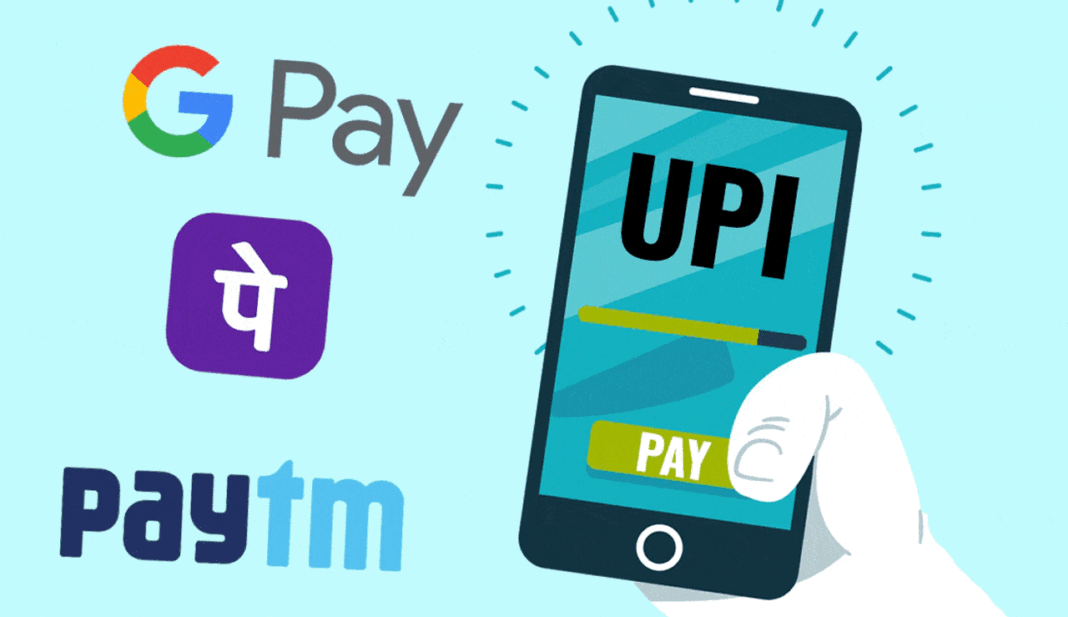
In a major development to boost digital safety, the Government of India has partnered with leading fintech platforms Google Pay and Paytm to address the rising issue of real-time payment frauds. This initiative is part of a broader mission to strengthen the country’s Unified Payments Interface (UPI) system and protect millions of users who rely on mobile transactions for their daily needs.
With India leading the world in digital payments, clocking more than 13 billion UPI transactions every month, the threat of cybercrime has become more serious than ever. While digital platforms have simplified money transfers, purchases, and bill payments, they have also opened new doors for fraudsters and scam networks. Fake UPI links, QR code traps, phishing calls, and impersonation frauds have become common, causing financial and emotional distress to thousands of people every day. The government’s decision to bring together technological powerhouses and law enforcement agencies is a bold step toward creating a real-time fraud monitoring infrastructure.
The Urgent Need to Stop Real-Time Payment Frauds in India
The speed and convenience of UPI have revolutionized digital finance in India, but the same speed makes it difficult to stop fraud once it starts. In real-time payment fraud, transactions are completed in seconds. By the time the user realizes something is wrong, the money is already transferred and, in most cases, unrecoverable. Fraudsters use social engineering tricks like pretending to be customer service agents, offering fake job opportunities, or convincing users to scan a QR code for cashback, only to steal money.
This type of fraud has become a serious national concern, especially because more than 400 million Indians now use UPI platforms. A growing number of people from rural areas and older age groups have joined the digital economy, often without sufficient awareness about cyber risks. This gap in knowledge makes them soft targets for criminals. The Reserve Bank of India (RBI) has already expressed concern over the surge in complaints related to unauthorized digital transactions, underlining the urgent need for systemic solutions.
How the Government, Google Pay, and Paytm Are Collaborating
In response to the growing crisis, the government is working on a comprehensive strategy with digital payment platforms and the banking sector. This partnership aims to implement real-time fraud detection mechanisms and develop faster ways to respond to reported scams. One of the core features of this initiative is the creation of a central fraud detection system that will use advanced artificial intelligence (AI) and machine learning (ML) to monitor unusual transaction patterns across platforms.
For instance, if a user who typically makes small payments suddenly initiates a large transaction to an unfamiliar UPI ID, the system will automatically flag it. The payment may be temporarily paused, and the user will receive an alert to verify the transaction. This could significantly reduce the number of successful frauds, especially those that rely on tricking users into acting quickly.
The government is also developing a common alert system that will enable quick communication between banks, payment apps, and law enforcement agencies. Currently, if a fraud occurs, the victim often has to contact multiple parties, file an FIR, and wait for an uncertain outcome. This disjointed system not only delays justice but also discourages many victims from reporting the fraud at all. A real-time, interconnected framework would allow for immediate freezing of suspect accounts and could even enable reversal of payments in certain situations, greatly increasing the chances of recovering lost money.
Blocking Fraudulent UPI Handles and Blacklisting Accounts
As part of the joint effort, the government and fintech partners are also creating a reporting platform for users to flag suspicious UPI IDs and fake merchant handles. Once a UPI ID is reported by multiple users and verified as fraudulent, the system will automatically blacklist that handle, preventing it from receiving further payments. This move will dismantle fraud networks and serve as a deterrent for scammers.
Importantly, this platform will also maintain a database of blacklisted accounts, helping banks and apps block transactions proactively. The goal is to not just react to fraud but to prevent it altogether by using shared data intelligence.
User Awareness: The First Line of Defense
While technology plays a big role in fighting fraud, user awareness remains the strongest weapon. The government, along with Google Pay and Paytm, is planning to roll out a massive digital awareness campaign across platforms. These campaigns will be designed in simple language, using real-life examples to educate users about common fraud tactics and how to avoid them.
From in-app alerts to short videos, radio ads, and educational infographics, the awareness program will cover a wide range of content formats. Users will be regularly reminded to never share their OTPs, UPI PINs, or account details, and to verify before sending money to unfamiliar accounts. The campaign will also emphasize the importance of using official customer support numbers instead of replying to random texts or calls pretending to be from banks.
This campaign will target both urban and rural populations, ensuring that the message reaches the grassroots level where many first-time digital users reside. By building a more informed user base, the chances of scams succeeding will drop significantly.
Google Pay and Paytm’s Advanced Fraud Protection Tools
Both Google Pay and Paytm have already been working independently to improve fraud protection. With this collaboration, their efforts will be amplified and aligned with national cybersecurity goals. Google Pay has already deployed AI-based tools that detect suspicious patterns, such as repeated failed attempts to log in or changes in device location. It also issues real-time warnings to users if a transaction looks unusual.
Meanwhile, Paytm has developed its own risk engine that analyzes behavior such as transaction frequency, value, and recipient history. It also provides a 24/7 fraud helpdesk where users can report issues instantly. Both platforms are now working on deeper integration with law enforcement and the NPCI (National Payments Corporation of India) to enable quicker account suspension and investigation.
With the government’s support, both companies will gain access to shared databases, enabling them to act faster on reported frauds and proactively block harmful activities.
The Bigger Picture: Toward a Secure Digital India
This partnership is more than a response to a growing problem—it is a vision for a safer digital future. India’s leadership in UPI technology has transformed global conversations around digital payments. Now, the country is poised to set new standards in cybersecurity and fraud prevention.
The long-term roadmap includes building a centralized fraud registry, offering insurance options for UPI fraud victims, and even exploring the use of biometrics and facial recognition as additional security layers. These future innovations will strengthen India’s digital backbone and make it even more resilient against cyber threats.
A Word of Caution: Responsibility Also Lies With Users
Even with advanced systems in place, the responsibility of being cautious still lies with the users. It is crucial for everyone to develop good digital habits. Always check the identity of the person you are transferring money to. Never trust QR codes from strangers. Do not fall for promises of cashback, lottery wins, or fake tech support. And above all, if something feels suspicious, stop and verify before proceeding.
Being alert can save users from major financial losses. As the government and fintech platforms do their part, digital citizens must stay informed, aware, and alert to truly build a fraud-free ecosystem.
The joint effort by the Indian government, Google Pay, and Paytm marks a milestone in the fight against real-time payment frauds in India. It brings together the strengths of public policy, private technology, and citizen awareness to create a secure, transparent, and trustworthy UPI ecosystem.
As digital transactions continue to rise, this partnership shows a strong commitment to protecting users and maintaining India’s position as a global fintech leader. Through this initiative, every transaction will not just be fast—it will also be safe, secure, and scam-proof.































